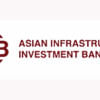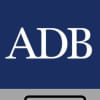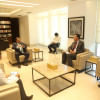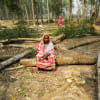ADB scales up funding by 85pc

The Asian Development Bank would be providing $9.05 billion over the next three years, up 84.7 percent from the preceding three years, as the Manila-based lender is mobilising greater resources to prepare the country well for graduation from the LDC bracket in 2026.
In ADB's indicative allocation plan for Bangladesh, $3.29 billion would come in 2023, $3.21 billion in 2024 and $2.55 billion in 2025.
However, 69.5 percent of the funds would be on near-market terms in line with the country's rising per capita GDP. In the previous three years, the share of such loans was 57.5 percent.
Loans at near-market terms have a repayment period of 25 years with a grace period of five years and the interest rate is LIBOR + 0.75 percent. Concessional loans for Bangladesh have the same repayment schedule but the interest rate is fixed at 2 percent.
"This is inevitable given the rate at which Bangladesh's per capita GDP is increasing -- concessional financing will dry up from all sources soon," said Zahid Hussain, a former lead economist of the World Bank's Dhaka office.
The higher non-concessional financing has raised the stakes for the government to be more disciplined and prudent judicious in project selection and more efficient in project implementation.
The projects must be of very good quality and must have a direct contribution towards: economic growth, economic diversification, infrastructural development, human capital development or strengthening social protection.
"If we don't complete the projects on time, the repayment on these non-concessional loans will become due and go on to create an excessive burden on the balance of payment," Hussain added.
Of the allocation, $2.15 billion would be going towards upskilling Bangladesh's human capital, creating employment opportunities and enhancing social safety net guardrails and healthcare.
The Manila-based multilateral lender is providing $300 million in 2023 for setting up a vaccine manufacturing and research centre in Gopalganj.
Another $2 billion has been earmarked for projects under the ADB's flagship SASEC programme that aims to promote regional prosperity and improve economic opportunities for the people in Bangladesh, Bhutan, India, Maldives, Myanmar, Nepal and Sri Lanka.
Projects for laying dual-gauge rail lines for Laksam-Chattogram and Tongi-Akhaura dual-gauge, setting up Dhaka-Northwest corridor road and improving the South corridor fall under the SASEC overhead.
For improving Bangladesh's water supply and urban infrastructure, $1.45 billion has been earmarked.
Projects pertaining to the urban development of Narayanganj, the development of Dhaka's sewerage system development, enhancing Khulna's water supply and establishment of a water supply system in the cluster and coastal towns fall under this bracket.
About $820 million would be going to projects that would be mitigating the effects of climate change and $743.5 million for enhancing the power system.
Projects for developing economic zones and strengthening the economic structure for LDG graduation have been included in the indicative allocation plan for the three years.
But in this fiscal year, the majority of the funds would be going towards budget support and mitigating the effects of the Ukraine war, said finance ministry officials familiar with the discussions.
"We sought $1 billion for budget support but they agreed to give $500 million. There is another $700 million allocated for climate-related projects -- those projects will not have any foreign component, so the amount would reflect in the foreign exchange reserves," said one of the officials.
If the ADB can get the government to commit to 3-4 critical reforms in exchange for the budget support, it would benefit the country greatly, Hussain said.
"The fact that preparation for LDC graduation is explicitly mentioned in ADB's assistance programme is a step in the right direction."
In preparation for LDC graduation, the country needs to address its trade-related challenges.
The shortcomings in trade logistics, infrastructural capacity for trade and institutional capacity in trade negotiations must be fixed.
"Our duty privileges will vanish upon graduation, but we need preferential access. We need to negotiate trade agreements and for that, we need capacity building for negotiations. ADB can help with technical assistance."
The Manila-based lender can perhaps train officials of the commerce ministry, the Bangladesh Bank and the Bangladesh Tariff Commission for targeted trade negotiations with India, China, the US and the EU, Hussain added.
"LDC graduation is a live issue and ADB's support is needed here," said Ahsan H Mansur, executive director of the Policy Research Institute of Bangladesh.

 For all latest news, follow The Daily Star's Google News channel.
For all latest news, follow The Daily Star's Google News channel. 








Comments